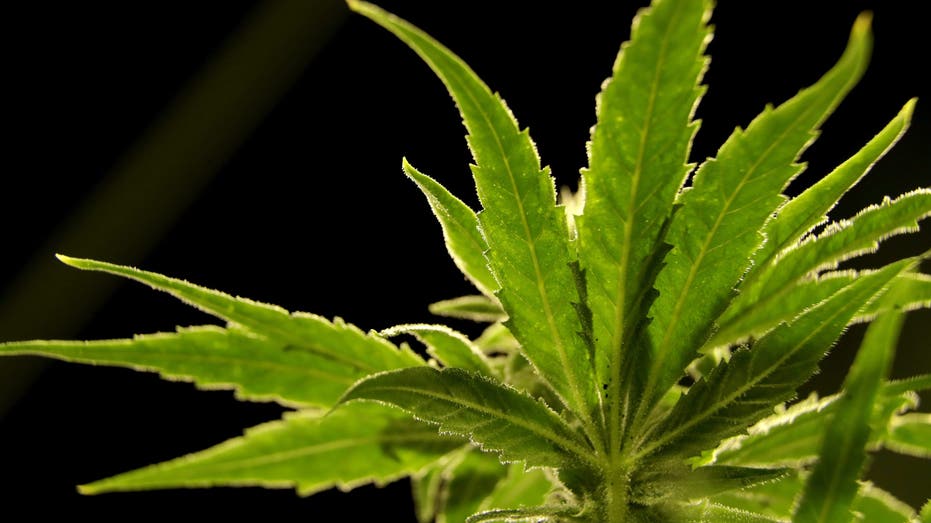Biden admin will move to reclassify marijuana as 'less dangerous drug' in historic shift
The U.S. Drug Enforcement Administration will move to reclassify marijuana as a less dangerous drug, the Associated Press reported on Tuesday.

The U.S. Drug Enforcement Administration announced on Tuesday that it will move to reclassify marijuana as a less dangerous drug, Fox News has confirmed.
The planned move by the Biden administration comes during an election year.
This proposal, if passed, would recognize the medical uses of cannabis and acknowledge it has less potential for abuse than some of the nation’s most dangerous drugs.
However, it would not legalize marijuana outright for recreational use.
FETTERMAN HIGHLIGHTS NEED FOR 'SAFE, PURE, TAXED' MARIJUANA IN 4/20 PUSH TO LEGALIZE WEED
"Attorney General Garland is submitting a new rule to OMB as soon as today which would reclassify marijuana," a Biden administration official told Fox New. The Department of Justice has declined to comment.
The rule change means marijuana would no longer be a Schedule I restricted substance.
"Today, the Attorney General circulated a proposal to reclassify marijuana from Schedule I to Schedule III. Once published by the Federal Register, it will initiate a formal rulemaking process as prescribed by Congress in the Controlled Substances Act," DOJ Director of Public Affairs Xochitl Hinojosa said in a statement.
CANNABIS SEIZURES AT CHECKPOINTS BY US-MEXICO BORDER FRUSTRATE STATE-AUTHORIZED POT INDUSTRY
Sen. John Fetterman, D-Penn., made his case for marijuana legalization earlier this month, emphasizing that safety is heightened when marijuana is regulated.
"It needs to be safe, pure, taxed and available," Fetterman previously told Fox News Digital, explaining that illegally purchased versions of the drug are difficult to trace and could be cut with dangerous substances, such as fentanyl.
He has also lobbied Biden to deschedule marijuana from the Controlled Substances Act (CSA), under which the Drug Enforcement Administration (DEA) currently lists it as schedule I. This schedule includes drugs "with no currently accepted medical use and a high potential for abuse." Marijuana is included in the list of schedule I substances, alongside heroin, lysergic acid diethylamide (LSD), ecstasy, and peyote, among others.
THESE ARE THE TOP HEALTH RISKS OF MARIJUANA USE, ESPECIALLY SMOKING CANNABIS
As the drug schedule changes – Schedule II, Schedule III, etc., so does the abuse potential – Schedule V drugs represent the least potential for abuse.
Schedule III drugs have a lower misuse potential than I and II, according to CSA. Drugs in this category may cause physical dependence but more commonly lead to psychological dependence.
Drugs in this category also require a prescription and all CSA record-keeping requirements would apply. However, this does not mean it is legal to sell without a Medical License and a DEA registration. It is the same as filling a prescription at a pharmacy.
NCAA PANEL RECOMMENDS MARIJUANA BE DROPPED FROM BANNED SUBSTANCE LIST
According to the National Conference of State Legislatures, marijuana in small amounts has been made legal for recreational use by adults in 24 states, as well as Washington, D.C., and two U.S. territories.
"Any adult should be allowed to do that legally without any criminal … blowback," the Pennsylania senator said.
Fetterman stressed he doesn't believe "anyone [should] have their lives impacted criminally for a nonviolent marijuana charge."
"Republicans want legal weed. Democrats want legal weed," Fetterman said. "And I think this is a [place] where we could come together in a bipartisan way to say, 'Look, let's do this and just get on with it.'"
Marijuana is the most commonly used federally illegal drug in the U.S., according to the Centers for Disease Control and Prevention, with an estimated 48.2 million users nationwide in 2019, which has only increased since then, with states continuing to legalize recreational and medical cannabis use.
Fox News Digital's Julia Johnson and Kyle Schmidbauer, Fox News' Jake Gibson, David Spunt and Patrick Ward, as well as The Associated Press contributed to this report.



